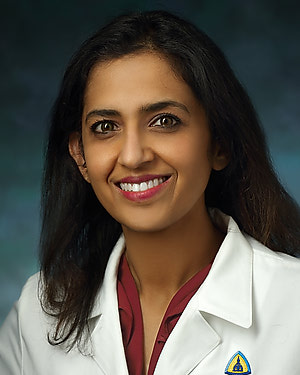Research Lab Results
-
Danelle O. Cayea Lab
Researchers in the Danelle O. Cayea Lab develop and evaluate curriculum that teaches the care of older adults to residents and medical students. Our work includes older adults with complex heath issues who receive care in hospital and ambulatory environments.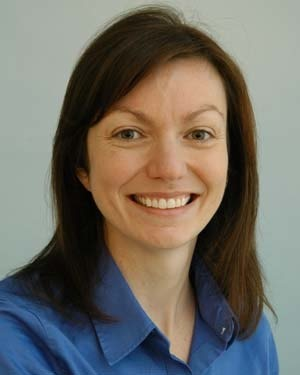
-
Erica Johnson Lab
Research in the Erica Johnson Lab investigates infection control in military deployment environments as well as infections that are associated with combat trauma. We explore topics such as HIV outcomes, gender-based health issues and disparities in care.
-
Elisseeff Lab
The mission of the Elisseeff Lab is to engineer technologies to repair lost tissues. We aim to bridge academic research and technology discovery to treat patients and address clinically relevant challenges related to tissue engineering. To accomplish this goal we are developing and enabling materials, studying biomaterial structure-function relationships and investigating mechanisms of tissue development to practically rebuild tissues. The general approach of tissue engineering is to place cells on a biomaterial scaffold that is designed to provide the appropriate signals to promote tissue development and ultimately restore normal tissue function in vivo. Understanding mechanisms of cellular interactions (both cell-cell and cell-material) and tissue development on scaffolds is critical to advancement of the field, particularly in applications employing stem cells. Translation of technologies to tissue-specific sites and diseased environments is key to better design, understanding, and ultimately efficacy of tissue repair strategies. We desire to translate clinically practical strategies, in the form of biomaterials/medical devices, to guide and enhance the body's natural capacity for repair. To accomplish the interdisciplinary challenge of regenerative medicine research, we maintain a synergistic balance of basic and applied/translational research. -
Welling Laboratory
Dr. Paul A. Welling and his research team explore the genetic and molecular underpinnings of electrolyte physiology, potassium balance disorders, hypertension and kidney disease. A major thrust of current research activity is devoted to understanding how faulty genes and environmental stresses drive hypertension. The research is providing new insights into how the Western diet triggers deleterious responses of salt-sensitivity genes. The Welling laboratory employs a multidisciplinary approach, spanning from gene discovery, molecular biology, genetically engineered mouse models to translational studies in humans. By illuminating pathophysiological mechanisms and translating the discoveries to develop more effective diagnostic and therapeutic strategies, Welling’s group is striving to improve the health of at-risk individuals and patients with kidney disease and hypertension.
Dr. Welling is the Joseph S. and Esther Hander Professor of Laboratory Research in Nephrology. He has been continuously funded by the National Institutes of Health for over 25 years. Currently he serves as Coordinator of a Global Research Network, funded by the LeDucq Foundation. More about his research can be found at https://www.wellinglab.com/ -
William Checkley Lab
Research in the William Checkley Lab explores the field of lung health, with an emphasis on the epidemiology of obstructive lung diseases as well as acute lung injury and mechanical ventilation. We also explore the interactions between nutrition and infection, and the impact of environmental exposures to health.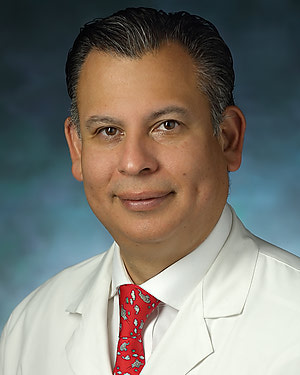
-
Venkataramana Sidhaye Lab
We are interested in basic and translational studies looking at the effects of environmental exposures, including cigarette smoke and electronic cigarettes, on lung epithelial function. We are focused on mechanisms to reverse injury to promote lung health, primarily in the context of Chronic Obstructive Pulmonary Disease (COPD). -
Kimberly Gudzune Lab
Research in the Kimberly Gudzune Lab examines how obesity affects patient-provider relationships and how physical and social environments impact body weight. We recently conducted a cohort study of married couples and found that having a spouse who become obese nearly doubles one's risk of becoming obese. -
Nadia Hansel Lab
Research in the Nadia Hansel Lab investigates the clinical, pathophysiologic and public health aspects of pulmonary diseases, with a focus on asthma and chronic obstructive pulmonary disease (COPD). We have explored how environmental exposures, nutrition and diet, comorbidity and other factors influence the outcomes of diseases such as asthma and COPD.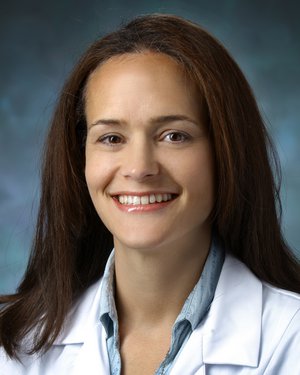
-
The mission of the Lemberg research group is to understand metabolism in childhood/young adult cancers in order to develop a better understanding of how these cancers develop, how they respond to treatments, and how children can go on to live healthy lives with or after a cancer history. We aim to investigate how tumors and the surrounding physiologic environments interact to drive nutrient use so that the tumor can grow and spread, and how the presence of a cancer affects the development of the whole child. Our ultimate goal is to improve outcomes for children and young adults with cancer.
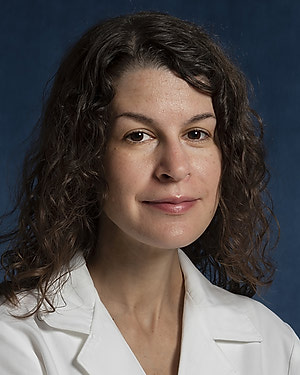
-
Wang Lab
Our laboratory is interested in understanding the neural basis of auditory perception and vocal communication in a naturalistic environment. We are interested in revealing neural coding mechanisms operating in the cerebral cortex and how cortical representations of biologically important sounds emerge through development and learning.



